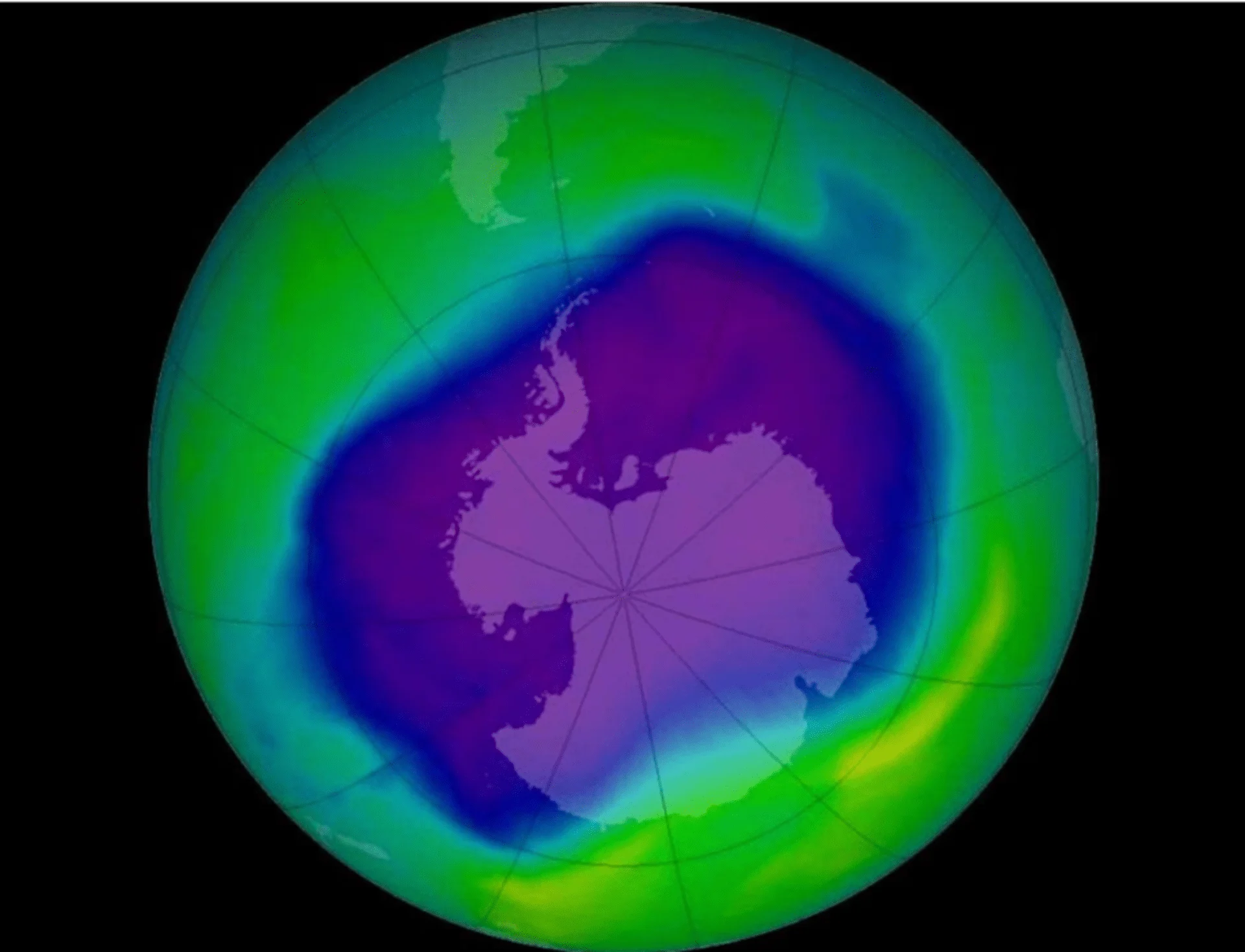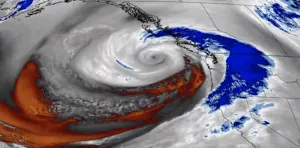
Three scientists found a hole in the ozone layer, prompting a global treaty
On this day in weather history, scientists published that there's a hole in the ozone layer.
This Day In Weather History is a daily podcast by Chris Mei from The Weather Network, featuring stories about people, communities and events and how weather impacted them.
--
On Thursday, May 16, 1985, Joe Farman, Brian Gardiner and Jonathan Shanklin announced their findings in the scientific journal Nature. They shared that the levels of ozone over the South Pole were abnormally low.
The three scientists from the British Antarctic Survey had no idea how their findings were going to mobilize a global movement that former UN Secretary General Kofi Annan called "perhaps the single most successful international agreement to date."

Courtesy of NOAA
The ozone layer is a part of Earth's stratosphere. It blocks most of the sun's harmful ultraviolet radiation.
The scientific paper highlighted that there was a "hole" in the ozone layer. And that hole was created by mankind.
Click here to subscribe to This Day in Weather History
That paper travelled far and wide, and within two years, 46 countries signed the Montreal Protocol -- a treaty that pledged to phase out ozone depletion substances.
The Montreal Protocol is a success. All 197 members of the United Nations have ratified the treaty.

"This time-lapse photo from Sep. 9, 2019, shows the flight path of an ozonesonde as it rises into the atmosphere over the South Pole from the Amundsen-Scott South Pole Station. Scientists release these balloon-borne sensors to measure the thickness of the protective ozone layer high up in the atmosphere." Courtesy of Robert Schwarz/University of Minnesota
Because of the quick and effective action, current projections show that the ozone layer will return to pre-1980 levels between 2050 and 2070.
To learn more about the scientific paper in Nature and the discovery of the hole in the ozone layer, listen to today's episode of "This Day In Weather History."
Subscribe to 'This Day in Weather History': Apple Podcasts | Amazon Alexa | Google Assistant | Spotify | Google Podcasts | iHeartRadio | Overcast'
Thumbnail: Courtesy of NOAA










